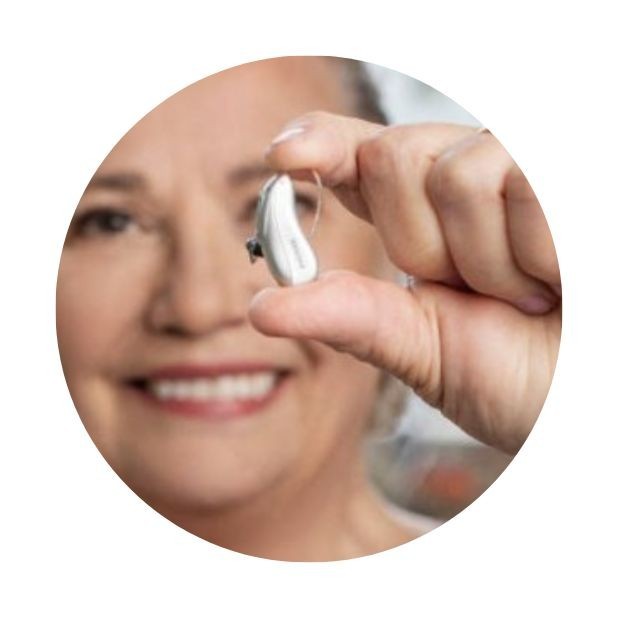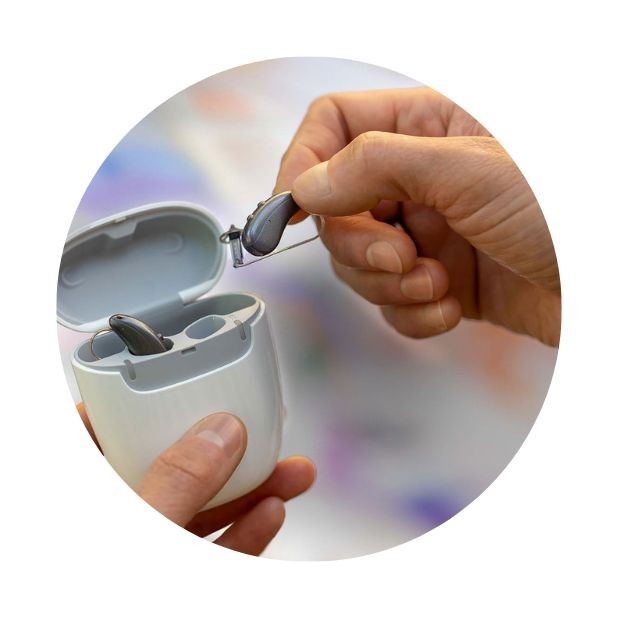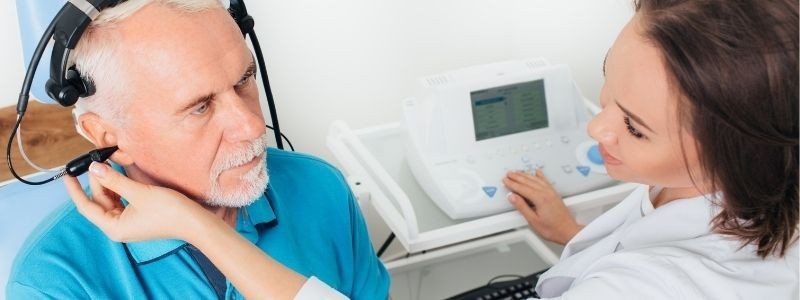Hearing Aids Near Me in the UK
Where is the best place for hearing aids locally?
Thinking about purchasing hearing aids, upgrading your current ones, or where to access hearing aids in your area?
Whatever your situation and wherever you live, we have around 2-3 professional hearing aid audiologists local to you and over 200 qualified audiologists across the UK. Our audiologists operate in either an audiology center near you or a home visiting service.
We can put you in touch with the right audiologist who can look after your future hearing healthcare and find the most appropriate hearing solution for you.
So, which hearing aid is right for me?
We have compiled a brief informative page below to help you make the right decision for yourself, your lifestyle, your needs, and your level of hearing loss.
Here is a quick reference to some of the main factors to consider when purchasing hearing aids to give you an idea of what to look out for and what questions to ask an audiologist local to you.
What factors should you consider when purchasing a hearing aid near you?

Paul Harrison
Founder and Audiologist
0800 567 7621

Hearing Aids Near Me in the UK
Finding the right local audiologist is key to better hearing
You might be here because you are researching the best place for hearing aids near me, and you wouldn't be the only one. When you are searching for hearing aid assistance near you you must find the right audiologist who is in your area. In many ways, it is just as important as finding the right hearing aids and some would argue even more so.
In reality, you are paying for the audiologist's time and experience and not just your devices when you purchase your new hearing aids. Then after your initial consultation, you will benefit from a professional relationship built on trust and reliability - as well as aftercare that ensures you are always hearing at your best.

Three main benefits of purchasing your hearing aids locally
Personalised fitting and adjustments: Local hearing aid providers can offer personalised fitting and adjustment services tailored to your specific hearing needs and preferences. Being able to visit a local provider allows for face-to-face interaction, ensuring that the hearing aids are properly fitted and optimised for your comfort and performance.
Convenient aftercare: Having access to a local provider means you can easily seek assistance for any issues or questions that arise with your hearing aids. Whether it's troubleshooting technical issues, scheduling follow-up appointments, or seeking advice on maintenance and care.
Community connection: Building a relationship with a local hearing aid provider creates a sense of community and trust. Local providers often have a strong understanding of the unique hearing healthcare needs within their community and can offer valuable insights and resources tailored to local preferences and conditions.
Hearing Aids Near Me in the UK
Guidelines to help you choose the right audiologist locally
Your medical history
Your health history is important and your audiologist needs to fully understand this before advising on any hearing aids.
Such as your usual listening environment, what you would like to hear more clearly, what hearing challenges you have, what your opinion is of hearing aids, and what type of device would make you feel more confident in wearing.
Your audiogram results explained
Your hearing test results should be explained clearly and relatively, so you are aware of your hearing challenges and at what level you can hear. Always ask for a printout of your results, so you can get used to how it looks and how it is mapped out, as well as keeping it for future reference.
Have the confidence to ask questions
Don't be afraid of asking your audiologist questions, they are there to support you and your hearing health going forward. The more you understand your own hearing loss and hearing aids - the better you can relate to and maintain your hearing health and the devices themselves.
Beware of affiliations
If you are advised on a certain hearing aid, ask why this one is being suggested for your hearing loss and how it will benefit you every day. Also, ask to see other models that would be suitable, so you get a varied choice.
We are mentioning this, as some hearing aid retailers are affiliated with certain hearing aid brands and would probably only offer these models.
Ask what's included in the price
Make sure you know exactly what you get when purchasing your new hearing aids, such as aftercare, follow-up appointments, and manufacturer's warranty. You don't want any nasty surprises in the future!
Discover the benefits of private and local audiologists
Ensure that you choose an audiologist who is not only local to you but one who is willing to expand on their knowledge, skill set, and experience. One that is willing to dedicate their time to simply helping you to hear better.
Also, on a more basic note, a local audiologist will be more convenient for you when travelling to and from appointments.

Audiologist Hearing Aids Near Me
Share the load of decision-making with family and friends
Family support is priceless
Choosing hearing aids is a daunting task with many factors to consider such as organising appointments, understanding information, making choices, and implementing said information as well as maintaining your hearing health. Therefore, sometimes family support and involvement are often crucial.
Family or friends can relieve anxiety, support the decision-making process, and help you feel more confident in your appointments. On another note, your family can observe the challenges of your hearing loss and learn to relate and know in which ways to support you better going forward.

Here we break down the priorities of hearing aids.
Audiological requirements
Different types of hearing loss require different fitting strategies. The hearing aids must have sufficient reserve amplification so they will last for several years – not just one or two. Five years is about right.
Technology and performance
This above all else determines the cost of the hearing aid. The higher the technology, the higher the price. This has nothing to do with the severity of the hearing loss, it’s about how well you want to be able to hear.
Size
As a general rule of thumb, the larger the hearing aid the more powerful it is. Smaller hearing aids have smaller batteries which could be difficult for people with poor dexterity. Smaller batteries don’t last as long.

Accessories
Some hearing aids have accessories that can be purchased. These include wireless transmitters that enable the sound from a television, telephone, or another device to “beam” sound into the hearing aid. The need for certain assistance by way of accessories can heavily influence the choice of make/model of hearing aid required.
Style
There are many different styles of hearing aids. The two main categories are ITE (in the ear) and BTE (behind the ear). These are becoming increasingly popular as they can be extremely small and cosmetic.
Cost
Without a doubt, the most common hurdle is hearing aid price. As most people with hearing loss need two hearing aids - the price tag eventually becomes a huge factor in people deciding to get help or not.
We understand that everyone has different needs and different budgets. You might want the most premium hearing aid on the market or you might want hearing aids at the most affordable price.

Audiology and Hearing Aids Near Me in the UK
Best place for hearing aids near me
Hearing aid centres near me
All our professional audiologists are local. Some audiologists work from their premises and some from various opticians. All of them offer a free home visit service if you would prefer at the most convenient time for you.
The hearing test is free as are all our other hearing healthcare services and aftercare. All you have to pay for is the cost of the hearing aid(s) plus the batteries - if they are not rechargeable devices.
We are lucky to have over 200 audiologists within our network - at least 2 in your area - and can support your hearing aids and hearing healthcare locally.
Links to other useful local hearing aid information
| Phonak hearing aids near me | Discover what local Phonak hearing aids are available |
| Oticon hearing aids near me | Discover what local Oticon hearing aids are available |
| Widex hearing aids near me | Discover what local Widex hearing aids are available |
| Resound hearing aids near me | Discover what local Resound hearing aids are available |
| Unitron hearing aids near me | Discover what local Unitron hearing aids are available |
| Bernafon hearing aids near me | Discover what local Bernafon hearing aids are available |
| Starkey hearing aids near me | Discover what local Starkey hearing aids are available |
| Signia hearing aids near me | Discover what local Signia hearing aids are available |
| Affordable hearing aids near me | Is there such a thing as affordable hearing aids? |
| Best hearing aids near me | What are the best hearing aids on offer? |
| Bluetooth hearing aids near me | Are Bluetooth hearing aids worth it? |
| Cost of hearing aids near me | What are the average prices of hearing aids? |
We can support your hearing healthcare needs locally
Call free on 0800 567 7621
8am - 8pm, 7 days a week
What's included in our hearing aid prices?
Our specialist service includes:
Do not spend hundreds of pounds without getting a second opinion from us.
Please call us on 0800 567 7621
 Not only are the prices great, but the service is fantastic! Many thanks to your team.
Not only are the prices great, but the service is fantastic! Many thanks to your team.Other pages you might find useful
Ask the Experts
6 Morton Lane
Walkwood
Redditch
Worcestershire
B97 5QA
Latest Launch
When we refer to a product as 'Latest Launch', we mean it is the latest to be released on the market.
New
When we refer to a product as 'New', we mean that the product is the newest hearing aid model on the market.
When we refer to a product as 'Superseded', we mean that there is a newer range available which replaces and improves on this product.
Older Model
When we refer to a product as an 'Older Model', we mean that it is has been superseded by at least two more recent hearing aid ranges.

